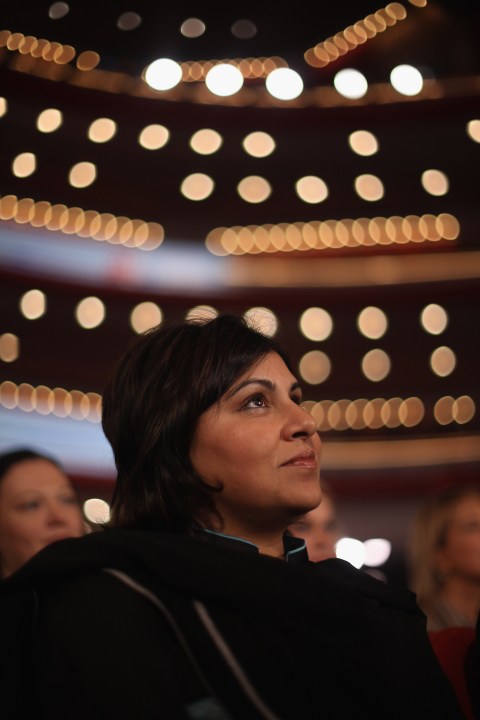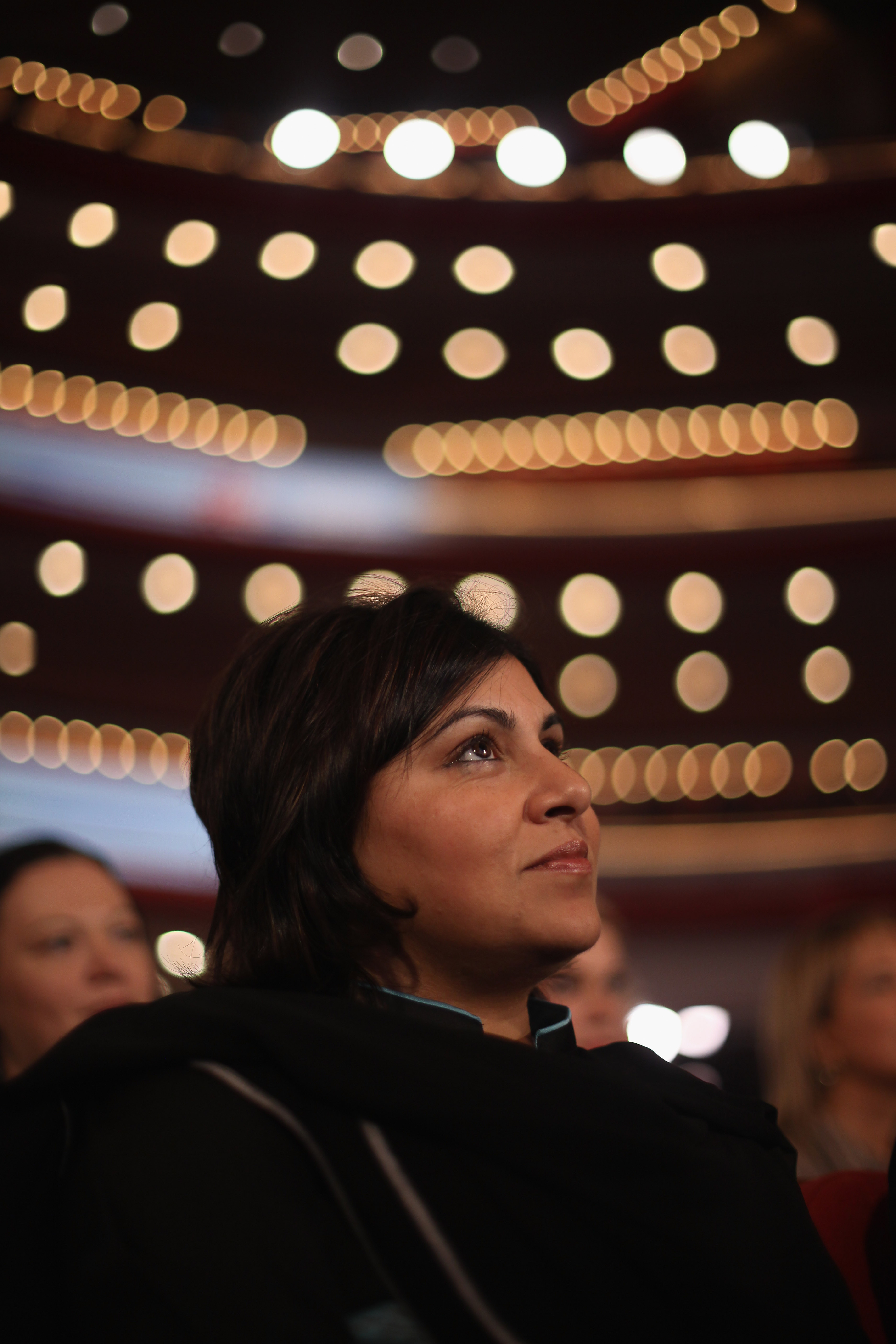For someone who has profited so well from her religion, it is particularly striking that Baroness Warsi should claim today that our societies are suffering because of ‘a militant secularisation’ which she claims is ‘taking hold.’ And worse, she says, that ‘one of the most worrying aspects about this militant secularisation is that at its core and in its instincts it is deeply intolerant. It demonstrates similar traits to totalitarian regimes.’
Not merely ‘militant’ and ‘worrying’, but ‘similar traits’ to those of ‘totalitarian regimes.’
Before addressing the numerous ways in which Warsi is wrong, I should note the one point on which I think she is right. It is true that there are some who, in their desire to see a full separation of religion and the state here in the future (something that is not currently the case), attempt to argue that the Christian religion was not a significant factor in our arrival here. Among them are the framers of the EU constitution. Warsi is right to highlight the error — not simply because no good can come from such a claim, but because denying the religious heritage of our country is dishonest and an attempt to deny history.
As for the rest, if it weren’t for the fact it is Warsi one would wonder how a minister could know so little and keep speaking. For instance, she appears particularly aggravated by the settlement reached in France a couple of centuries ago, claiming that what she sees as a new totalitarian assault can be seen ‘in any number of things’ such as ‘when signs of religion cannot be displayed or worn in government buildings; when states won’t fund faith schools; and where religion is sidelined, marginalised and downgraded in the public sphere.’ Neither of the first two points apply in the UK. The first is a matter for the French government, the second a long-standing settlement of the French state, and the third highly debatable in any nearby context. It is only possibly this third matter that could be regarded as applying to Britain. Yet even there Warsi is wrong — not least because if religion was as ‘marginalised and downgraded in the public sphere’ as she claims then there could hardly be any interest in a speech about faith given by a British Muslim minister, or indeed a high-level ministerial delegation to the Vatican.
The only evidence Warsi puts forward to justify her claim that there exists a ‘militant’ assault with ‘totalitarian’ traits is a perceived ‘marginalising’ and ‘downgrading’ of religion in the public sphere. Yet such evidence as she gives could not possibly justify the language she uses.
However, it is interesting to compare the intemperate language the noble Baroness uses (one might almost say smearing a whole non-religion) about secularists with the language she insists others use and refrain from using about some people who very noticeably claim inspiration from religion.
It was only just over a year ago that Baroness Warsi insisted very publicly that people should not use either the term ‘extremist’ or the term ‘moderate’ to differentiate violent Islamists from ordinary peaceable Muslims. And was it not the same Baroness Warsi who, only a few months ago, further insisted that not only should we not refer to Muslim extremists as Muslim ‘extremists’, we should not refer to them as ‘Muslim’ either? According to Baroness Warsi, speaking to the Guardian last November, if someone is an ‘extremist’ whilst being a Muslim then they forfeit their right to be described as a Muslim. If Warsi had her way that would mean that, in future, we would have no way of identifying, say, an Islamist suicide-bomber, other than to describe them as, er, ‘a non-Muslim.’
If this is the kind of contortion that Warsi wants in relation to Islam, then surely a very high bar indeed would need to be put on the calling of names relating to people who, for instance, do not want public prayers to be said before legislative meetings. But, alas, no. Such people are ‘militant’, ‘intolerant’ and betray ‘similar traits to totalitarian regimes.’
I should add one other thing which I suspect Warsi is aware of and which should not go unsaid. The reason that many Christians in Britain feel that their faith is being marginalised is not because of something happening in Bideford town council, aggravating though that is for many, but because over the last decade the religion of which Baroness Warsi is a member has made very sudden and significant inroads into British public life. Of course Christians do not like talking about this too much, but it is a demonstrable fact that where once Christianity dominated the discussion of faith in this country, over the decade since 9/11 it is Islam that has done so. The fact that even the head of the established church appears not to share the convictions of his own religion in relation to, for instance, sharia law, might be said to have had a more demoralising effect than anything Bideford Town Council could ever muster.
But it is so much easier to blame the diminishment of Christianity in Britain on ‘militant’ and totalitarian’ secularists. All this despite the fact around the world today we do not see any secularists, in the name of separation of church and state (or mosque and state), murdering or attempting to murder a believer for their differences of opinion. What we do see, around the world every single day, is Christians being killed for their beliefs. And the people who are doing the killing are notably not secularists. How could this go unaddressed? Perhaps the Pope could use the opportunity of Warsi’s visit to relate to her his own experiences post-Regensburg when a tiny quotation from a Byzantine emperor about the claims of Muhammad was responded to by murder, lootings, burnings and demands for the Pope’s murder around the world.
Consider the reason that this will not be addressed today and you see why the church, as much as the Conservative party, does not merely welcome the opportunity to identify straw men, but feels it needs them very badly.








Comments